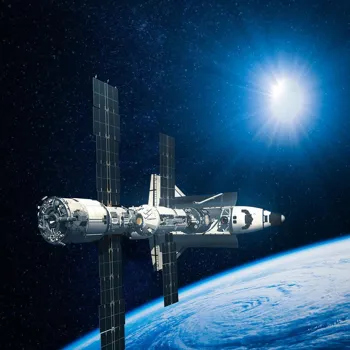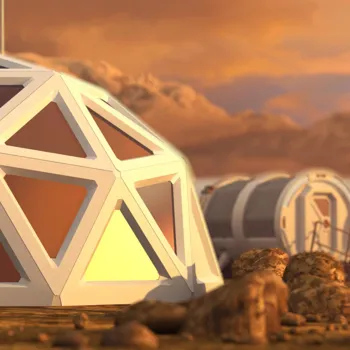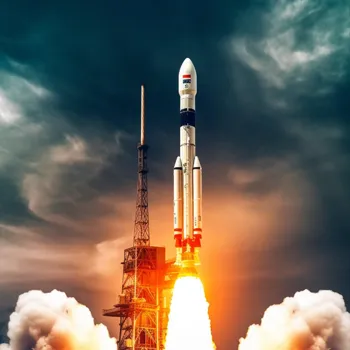Explore the world of space stations, vital for science & future exploration. Dive into their role in innovation & discovery
For decades now, space stations have captured our imagination, serving as tiny
outposts for humanity among the stars. These floating laboratories, orbiting high above our heads, aren't just for show.

They actually play a crucial role in advancing science, technology, and our understanding of the universe.
From conducting experiments in zero gravity to providing a platform for observing Earth, space stations offer a unique perspective and set of capabilities that cannot be replicated on the ground.
They are a crucial stepping stone to future space exploration, pushing the boundaries of what we know and what we can achieve. The ability to live and work in space is allowing scientists to constantly gain knowledge, which helps in the technological development on Earth.
Space stations enable zero-gravity experiments for new technology and Earth study
Space stations act like science labs, but unlike those on Earth, they have zero gravity. This helps scientists do experiments that cannot be done down below. For example, they can study how flames act in space or how liquids behave.

This leads to new knowledge about materials and chemicals, which can be used to invent new technology that improves life here on Earth. One example is how studying bone loss in astronauts has helped us understand and treat osteoporosis in older people.
Space stations also allow scientists to look at Earth in unique ways. From their high vantage point, they can study weather patterns and climate change, helping us to better protect our planet and its resources. All these studies and new inventions are helping the human race in it's survival.
Astronauts face challenges adapting to zero gravity in space
Living in space is no easy thing. Astronauts need to adapt to zero gravity, which can make simple tasks like eating and sleeping a challenge. Everything has to be carefully planned and organized to avoid things floating away.
Exercise is also very important, as the lack of gravity can cause muscles and bones to weaken. Despite these challenges, astronauts report that living in space is an amazing experience.
They get a unique view of Earth, witnessing sunrises and sunsets every 90 minutes, and feeling connected to something bigger than themselves. They also learn to work closely with people from different countries, which helps in international cooperation to continue development in space.
This international cooperation is very important for space exploration, as it allows countries to share costs and skills.
Space stations drive tech innovation for daily life
The benefits of space stations are not just limited to scientific discovery. They also play a role in technological development.

For example, the technology developed for water purification and recycling systems on space stations has been used to improve water quality in areas of the world where clean water is scarce.
Also, the advancements in materials science made for space stations have led to new, stronger, and lighter materials that are used in everything from airplanes to medical devices. Space stations are also paving the way for future space exploration missions.
By learning how to live and work in space for extended periods, we are gaining the experience needed to someday send humans to Mars and beyond. The constant push for innovation and improvement in space is directly impacting our everyday lives.
India advances space exploration through ISRO, launching satellites and planning human spaceflight
India is also active in space exploration, with the Indian Space Research Organisation (ISRO) playing a major role. ISRO has launched many satellites that are helping us to better understand our planet and the universe.

India is also working on its own human spaceflight program, Gaganyaan, which aims to send Indian astronauts into space. This will be a major step for India's space program and will help to further advance our understanding of space. This will help explore India's capabilities in space.
The Gaganyaan mission is a testament to India's growing capabilities in space exploration and its commitment to contributing to the global effort to understand and explore the universe.
Space stations symbolize human ingenuity and the future of space exploration
Space stations are more than just metal structures floating in orbit. They are symbols of human ingenuity, cooperation, and our endless quest to explore the unknown. They are vital for science, technology, and future space exploration.

As we continue to push the boundaries of what's possible, space stations will play an even more important role in shaping our future among the stars, leading to new discoveries and innovations that will benefit all of humanity. The future is in space, and space stations are our first homes there.
They represent a beacon of progress and a testament to our desire to push the limits of the universe.
AI Generated Content. Glance/InMobi shall have no liability for the content














